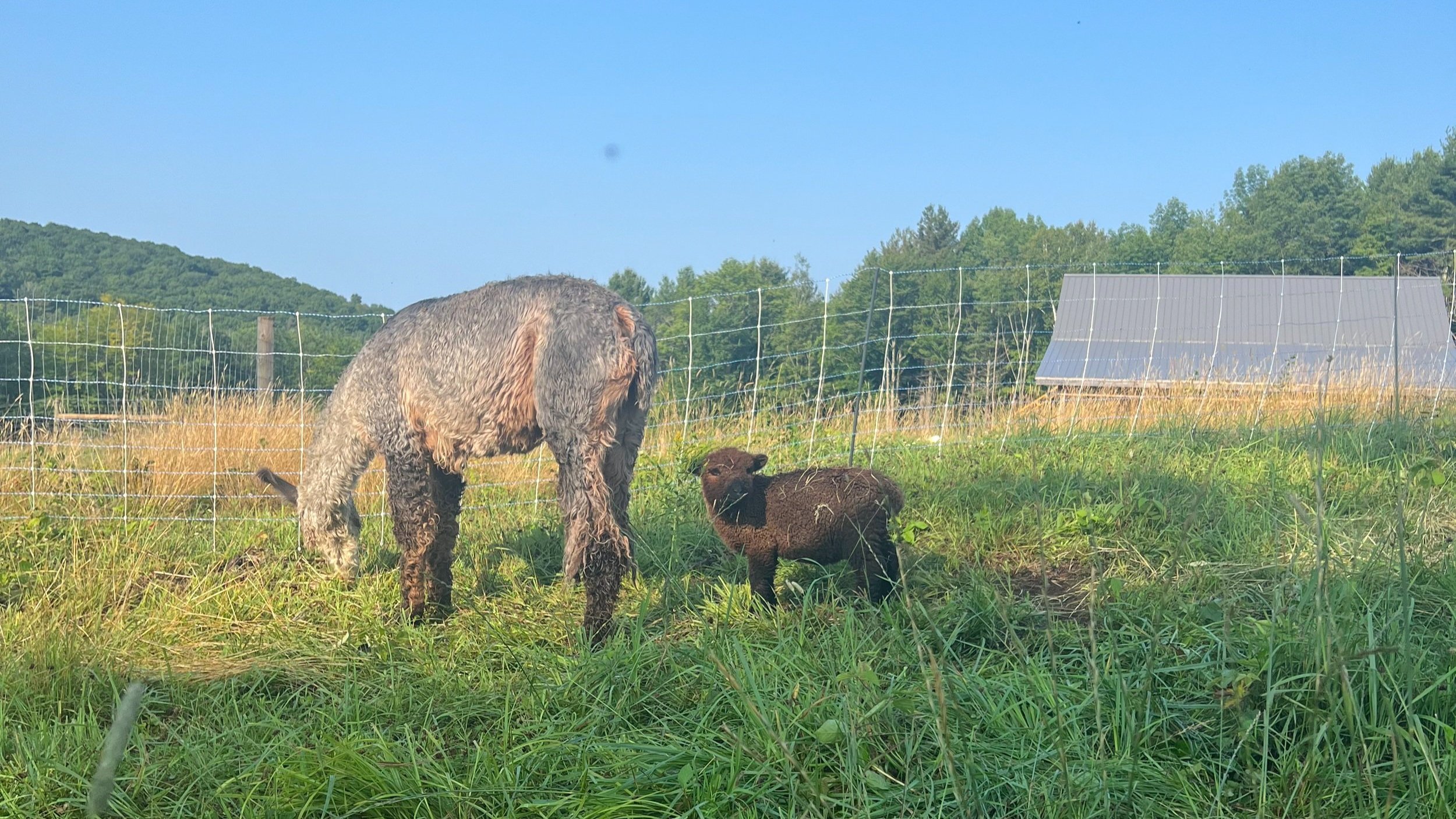
Organic & Climate Friendly
Organic Farmers are Climate Farmers!
Sajima Farm grazes livestock on certified organic pasture. Why is farming my land following organic practices important to me? In the fight against climate change, efforts that strengthen natural resources, bolster the self-sufficiency of local communities, and improve resilience to the extreme and the unexpected are key. Long associated with environmental protection, the practices used on Vermont organic farms do just that. These practices lean on the right side of the scale, contribute to the vitality and resilience of natural systems, anchor local economies, and can even mitigate the impacts of extreme weather events.
While organic farmers may be known best for what we don’t do: namely, pollute airways, waterways, and soils with toxic fertilizers and pesticides, we’re just as invested in this work for the ways our practices actively strengthen natural systems. In other words, while our practices abstain from the bad, they also contribute to the good.
While organic practices contribute to the reduction of climate change in many, many ways, I want to focus your attention on five of the heavy hitters here – you’ll notice some aren’t just focused on reducing climate change, but on building resilience to it as well:
Organic practices protect natural resources. The stronger our natural resources are, the more capable they are of preventing, absorbing, and reconfiguring the effects of climate change, like a system of checks and balances, re-attuning to Earth’s happy homeostasis. Because we’ve opted out of environmentally hazardous petrochemicals, our airways, waterways, and soils are that much less polluted. Our local flora and fauna are that much stronger, too. But organic practices like cover cropping (I cover cropped buckwheat when transitioning forest to pasture), crop rotation, and integrated pest management (rotational grazing my sheep is a key way I manage parasites without chemicals) go a step further to actively support air-water, and soil quality, as well as biodiversity. It’s all connected – the healthier the soil, the stronger the waterways; the stronger the biodiversity, the better the air quality. As Vermont organic farmers, our goal is to fuel this virtuous cycle: to strengthen our natural resources through our practices.
Organically farmed soils release fewer greenhouse gases. A healthy, vibrant soil ecosystem teems with life and decay. This rich food web produces nutrients that are readily bioavailable for my pasture, reducing the need for external fertilizers – some of which are major greenhouse gas contributors, both in their production and their application. Because organic farms abstain from using petrochemical fertilizers, we rely on biological soil processes more than our conventional counterparts. As such, we invest in our soils – from minimizing soil compaction to applying green manures, incorporating livestock, and maximizing soil cover. Much of our work revolves around giving our soils our very best, not to mention the fact that the healthier the soil is, the more capacity it has actually to sequester greenhouse gases, but more on that later.
Organic farms are more resilient to extreme weather events. One of climate change’s forecasts for Vermont is an increase in both the frequency and intensity of heavy rain events. Vermont’s recent severe flooding incidents have made national news. On-farm flood mitigation measures are more crucial than ever because the more resilient a farm is against flooding, the more consistently it will be able to provide food for its community when transportation and communication are impacted. A farm’s mitigation measures will also result in fewer incidents of run-off and erosion, aiding our waterways when they’re stressed. Our soil-boosting, biodiversity-encouraging, water-conscious organic practices ensure we’re better equipped to meet the challenges of extreme weather events.
Organically farmed soils store carbon. The organic practices listed above all improve soil’s chemical composition and structure, facilitating the kind of vibrant soil ecosystem that draws carbon and other greenhouse gases out of the atmosphere. This process, called sequestration, transforms hazardous greenhouse gases into soil nutrients that allow for even healthier soils, which can then sequester more greenhouse gases. Soil sequestration is one of the most cost-effective ways to reduce greenhouse gas emissions and, thus, decelerate climate change.
Organic farms are good for communities. In our globalized industrial age, Vermont organic farms represent something different: a core component of localized food systems, communities, and economies. These more self-sufficient traits are key to climate resilience.
Environmental stewardship is one of the reasons I got into organic farming at Sajima Farm in the first place. In this era of climate change and its consequences, I am more committed than ever to following organic practices. These represent some of our best allies against accelerating greenhouse gas emissions, extreme weather events, and the destruction of natural resources. While human activity spurred this vicious cycle through the exploitation and abuse of natural resources, human activity can, and must, be responsible for spurring the corresponding virtuous cycles that will restore equilibrium and preserve this place we call home. Organic farming is one such virtuous cycle.